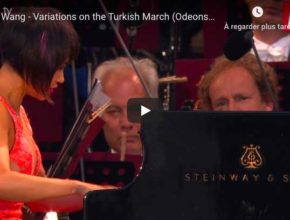Chopin’s Piano Concerto No. 1 in E Minor, Op. 11, was written in 1830, when the composer was twenty years old. The concerto was first performed on 11 October of 1830, at the Teatr Narodowy (the National Theatre) in Warsaw, Poland, with the composer as soloist.




















